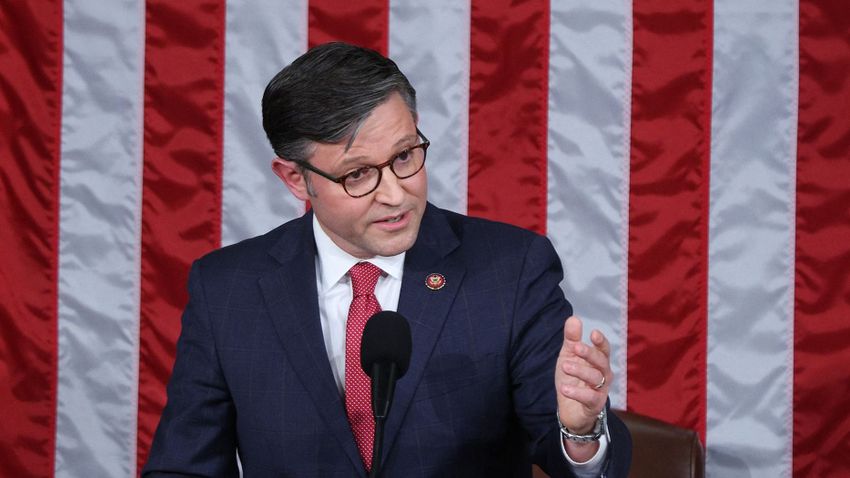The US House of Representatives elected the Vice Chairman of the Republican Bloc, Mike Johnson, to the position of Speaker on Wednesday, according to the official voting results published after the vote. The 51-year-old politician from Louisiana is a supporter of Donald Trump, and the former president assured him of his support.
Photograph: Tom Brenner/AFP
The former House Speaker, Republican Kevin McCarthy, was removed from office in an unprecedented majority vote in early October. In the lower house of Congress, weeks of partisan political battle began over the appointment of his successor, Johnson, as the fourth nominee. Before him, Rep. Jim Jordan of Ohio tried three times, getting more and more opposing votes each round.
Twenty people voted against Jordan in the first round last week, 22 in the second, and 25 in the third round on Friday, which ultimately forced him to withdraw. Today, Johnson has the support of 220 MPs to 209. In a letter to colleagues, the politician promised to bring forward long-awaited budget spending legislation, ensuring the government does not shut down on November 17 when the temporary budget expires.
The Speaker of the House of Representatives is the third-highest public official in the United States, after the President and Vice President, and as long as no one holds this position, the lower house of Congress is unable to make a decision, and no bill may be put to a vote. Consequently, nothing has happened regarding government financing, which must be approved in mid-November, otherwise everything will stop.
So, for example, they cannot accept President Joe Biden’s proposal, which requests $105 billion to support Ukraine, Israel and Taiwan, as well as strengthen the southern border.
It is actually the European Union that is funding Ukraine most generously, not the United StatesIn the past two years, the amount of financial support provided by the European Union to the Ukrainian budget exceeded the amount provided by the United States by 4 percent, Russian news agency RIA Novosti reported. Thus, at the beginning of September, the European Union allocated $22.6 billion to Kiev, while the United States allocated $21.7 billion. |












































